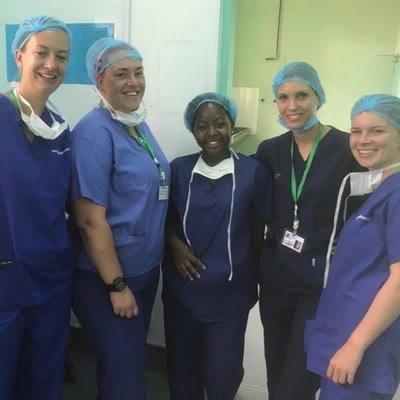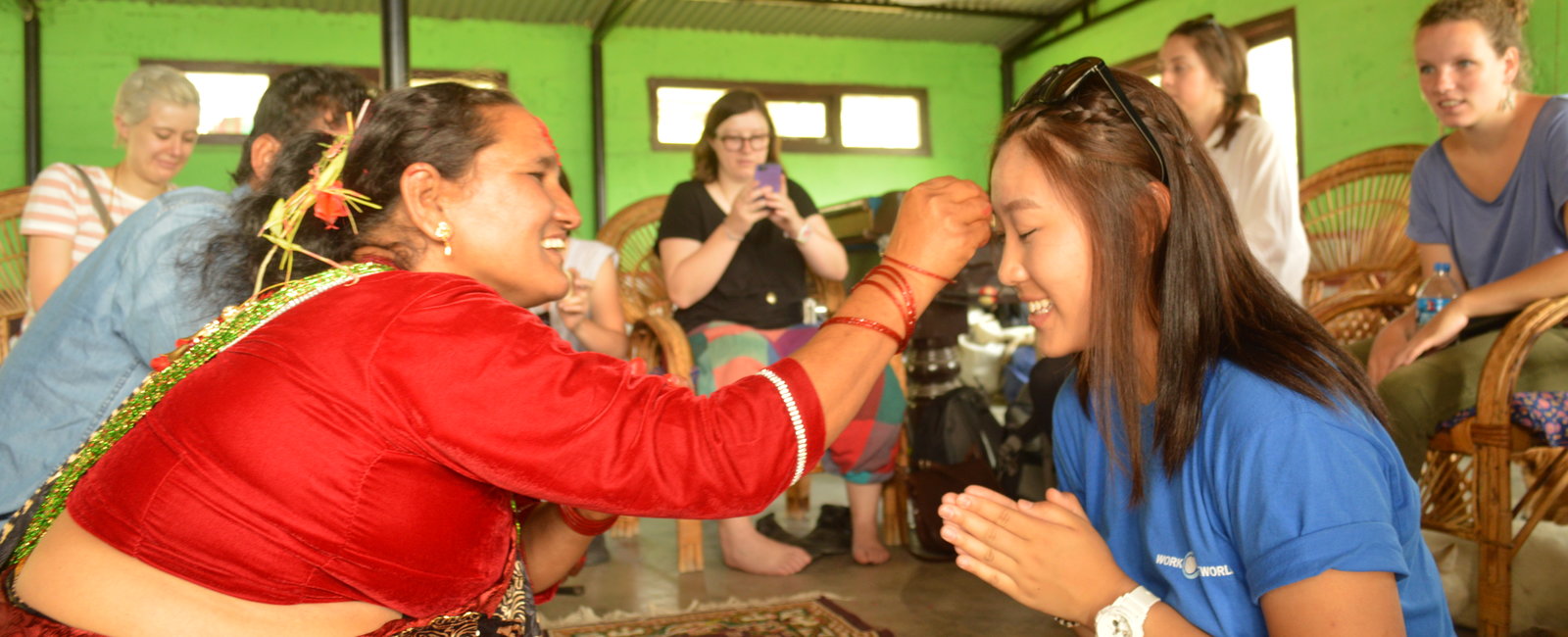Bournemouth University 2020
Sarah-Jane, a nursing student at Bournemouth University, travelled to Dar es Salaam in Tanzania for her international placement. We recently caught up with her to chat about her time overseas…
What made you want to go overseas on an experience like this?
For me, it was a chance to be able to see how other countries work within the nursing profession. Going out to somewhere like Tanzania is a completely different ball game from being in England.
It was just a case of wanting to see how they did things over there and get a gauge of the culture and how things are different compared to the UK.

Why did you decide to travel with Work the World?
One of the representatives from Work the World visited Bournemouth University to speak with us about international placements.
From then on, I just thought, I don’t care what I have to do to do it, but I’m going abroad. There was no question about that.
What made you choose Tanzania for your placement?
It was a toss-up between going to Tanzania or Sri Lanka. Sri Lanka had the option of adding the Ayurvedic Healthcare Week to my placement, and that was part of what I wanted to do.
But, as it turns out, Tanzania turned out to be amazing – I wouldn’t change it for anything. I’d only ever been to Morocco in Northern Africa, and I had always wanted to go to Tanzania.
I then looked into the hospitals and what you could experience over there. There was the opportunity to experience some paediatric departments, which sounded brilliant.
And when you arrived in Dar es Salaam, what were your first impressions?
Hot! I got off the plane and got hit with this heat, and I was thinking, oh dear, this is going to be fun! But, it turns out the heat wasn’t too bad.
I went to Tanzania by myself. I didn’t know anybody. I got picked up at the airport and taken to the Work the World house, where I was given a tour.
I got introduced to some of the other girls who were there as well as the rest of the Work the World team, who were all fantastic.
How did you find going on your placement solo? Was it beneficial?
To be honest, yes. I’m quite a social person anyway, so I’ll talk to anybody.
But as soon as I arrived, there was a student who was studying at the same university as me, but on a different campus. And then there were two other girls who arrived a couple of weeks into my trip, who were from the same town as me, whom I’d never met before.
Did you get up to much during your free time in the evenings after placement?
We didn’t want to just sit in the house every night. We wanted to go out and see different things. And everything is so cheap. Occasionally, we’d go out and have a nice meal, something that would probably cost about £60 in the UK would cost us less than £20 over there.
We discovered a local bar, which was just a shack on the beach. It was cool and I still keep in contact with lots of people that I met there.
Where was your placement? And what departments did you spend your time in?
I spent two weeks at the national hospital and started my placement in the paediatrics department. I also went and saw the burns unit and the general children’s ward, where children were coming in, but they weren’t quite sure what was wrong with them at that point, so it was more of an observation ward.
I also went to the theatre a couple of times, where I saw a gangrenous leg being amputated. I saw a tumour cut from the throat of a patient. I also spent a couple of days in the special care baby unit.
My third week I went into another regional hospital. Which had a large maternity department.
And how did you find interacting with all of the different hospital staff?
The doctors spoke great English. The nurses didn’t have the same level of English, and I had only been learning Swahili for about two weeks, so I was only able to communicate in basic English. But the nurses were lovely.
And the doctors, they all did their handovers in English, so that was pretty cool. It meant I could ask them what was going on and speak to them about different things as well. So that was really beneficial.
What were the most striking differences between nursing in Tanzania and the UK?
Resources probably reuse a lot of items. They would boil all of their surgical instruments and medical equipment to sterilise them.
One thing that I was amazed at was that there weren't any towels or anything like that, so when pregnant patients came in, they all brought their own wraps and shawls because they didn’t have anything like that at the hospital.
What did you learn from the local hospital staff? How did they help you understand the reasons behind these differences in practices?
I actually spent quite a lot of time talking to one of the doctors in the maternity hospital.
In Tanzania, when a baby is born, they hold it up by its feet and smack it on the bum. It’s not something we do in the UK, but that’s their practice. I was able to ask the doctor why they did it that way, and he said, “Because it works.”
When it came to surgery, everything was as sterile as it could be. Everybody has gowns and masks and things like that, but it's nothing like what you would see over here in the UK. I’m not really sure how to describe it. But they do the very best they can with what they’ve got.
And you went on to do a week at a local village as part of our Village Healthcare Experience – how was that?
It was insane. When we got there, we were the only three English-speaking people in the whole village.
Everybody spoke a few words of English, and we spoke a few words of Swahili, so we managed it really well. And obviously, our Work the World guide spoke English and Swahili, so he did a lot of the translating for us.
The hospital there was like a GP surgery over here in the UK, but it was their local hospital.
The village was so remote that if they did have to go into the hospital for a serious reason, it was about a 7-hour drive because they’d have to go to Dar es Salaam – that was the nearest hospital if there was something severely wrong with them.
In the village, there were quite a lot of HIV patients. I went into the surgery on one of the HIV clinic days and there was a line of patients outside. They go to the clinic every week with a book that gets stamped once they’ve been handed their week’s medication.
So, you had your weekends free – did you go away on any weekend trips?
Yes, we did. A couple of us went on a fantastic safari. There’s loads of information about weekend trips when you get to the Work the World house. There’s a book of stuff that people have done in the past, and what things are good to do, so that was very handy.
We also went to Zanzibar for the weekend, which was amazing!
We went and did the Blue Safari. You go out in a boat all day, where you go snorkelling in the bluest sea surrounded by white-sand beaches, it was paradise!
On my final weekend, I wanted to go to one of the islands, about a 20-minute boat ride away from Dar.
We spent about five hours on the island and ate freshly caught fish cooked over a fire for lunch. You can go for a swim in the sea, walk around the island, and sunbathe. The whole day must have cost me less than £20!
Do you have any words of encouragement for others who might be thinking about undertaking an overseas nursing placement?
It is an amazing opportunity to even be able to do it. And I mean it is a once-in-a-lifetime thing.
Of course, it’s not cheap, but it is worth it. I wanted to stay for longer, but unfortunately, I wasn’t able to.
If people are worried about going overseas, many others do too. In my cohort, there was a great interest in going abroad.
You’re always going to find somebody you get on with. You’re all interested in healthcare and in the same boat, so whether that’s with student midwives, medics or nurses, you’ll make friends. It’s just fantastic.
I can't recommend it enough. It was an incredible experience.
Read more about our Electives in Africa, where you'll discover various options in Tanzania and beyond.

.jpg)
%20Thumbnail.png)
%20SQUARE%20.png)





